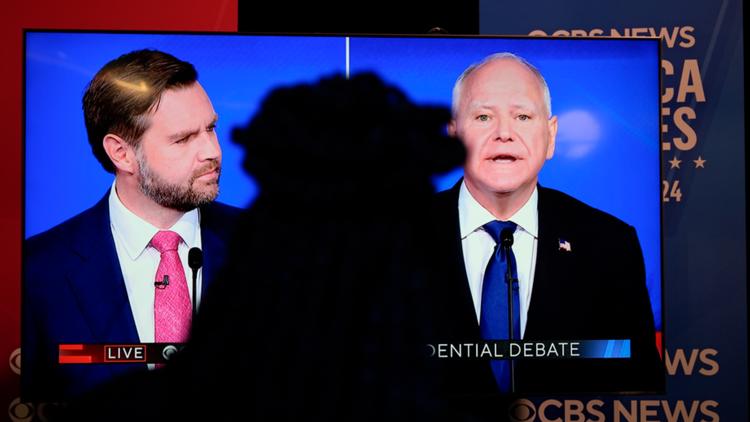
The recent vice presidential debate between Tim Walz and JD Vance was a riveting clash of ideas, focusing on the current global challenges facing the United States. The contenders sparred over crucial issues such as the violence in the Middle East, climate change, and immigration.
The debate marked the first face-off between Minnesota’s Democratic governor, Tim Walz, and Ohio’s Republican senator, JD Vance, setting the stage for a high-stakes exchange ahead of the 2024 presidential election. With no more debates scheduled before Election Day, this debate took on added significance against the backdrop of rising global tensions, exemplified by Iran’s recent missile attack on Israel.
Steady Leadership vs. Peace through Strength
The discussion on foreign policy highlighted a stark contrast between the Democratic and Republican tickets. Tim Walz emphasized the need for “steady leadership,” aligning with Vice President Kamala Harris, while JD Vance advocated for a return to “peace through strength,” a hallmark of former President Donald Trump’s tenure.
Despite their policy disparities, both candidates kept the focus on American leadership and the role it plays in navigating global challenges. Walz criticized Trump’s handling of international crises, while Vance emphasized the importance of effective deterrence against threats like Iran.
Looking Beyond Each Other
Interestingly, Walz and Vance directed their attacks not at each other but at the running mates absent from the debate stage. This strategy underscored the emphasis on the presidential nominees and their policies, with the vice presidential contenders serving as advocates for their respective tickets.
While discussing immigration, Walz criticized Trump’s unfulfilled promises, highlighting the limited progress on building a border wall. On the other hand, Vance targeted Kamala Harris, suggesting a lack of commitment to addressing immigration issues.
Climate Change and Domestic Solutions
Both candidates offered domestic approaches to combating climate change, emphasizing job creation and clean energy initiatives. Vance focused on boosting manufacturing in the U.S. as a solution, while Walz highlighted renewable energy investments under the Biden administration.
Their positive outlook on addressing climate change domestically reflected a departure from past rhetoric, signaling a shift towards proactive solutions to a global crisis.
Blame Game on Immigration Stalemate
Walz and Vance exchanged blame over the immigration challenges facing the country, each pointing fingers at the opposing presidential candidate. Vance criticized Harris for rolling back Trump-era immigration restrictions, while Walz accused Trump of derailing a bipartisan Senate deal on border security.
The debate highlighted the complexities of immigration policy and the ongoing struggle to find common ground on this contentious issue.




